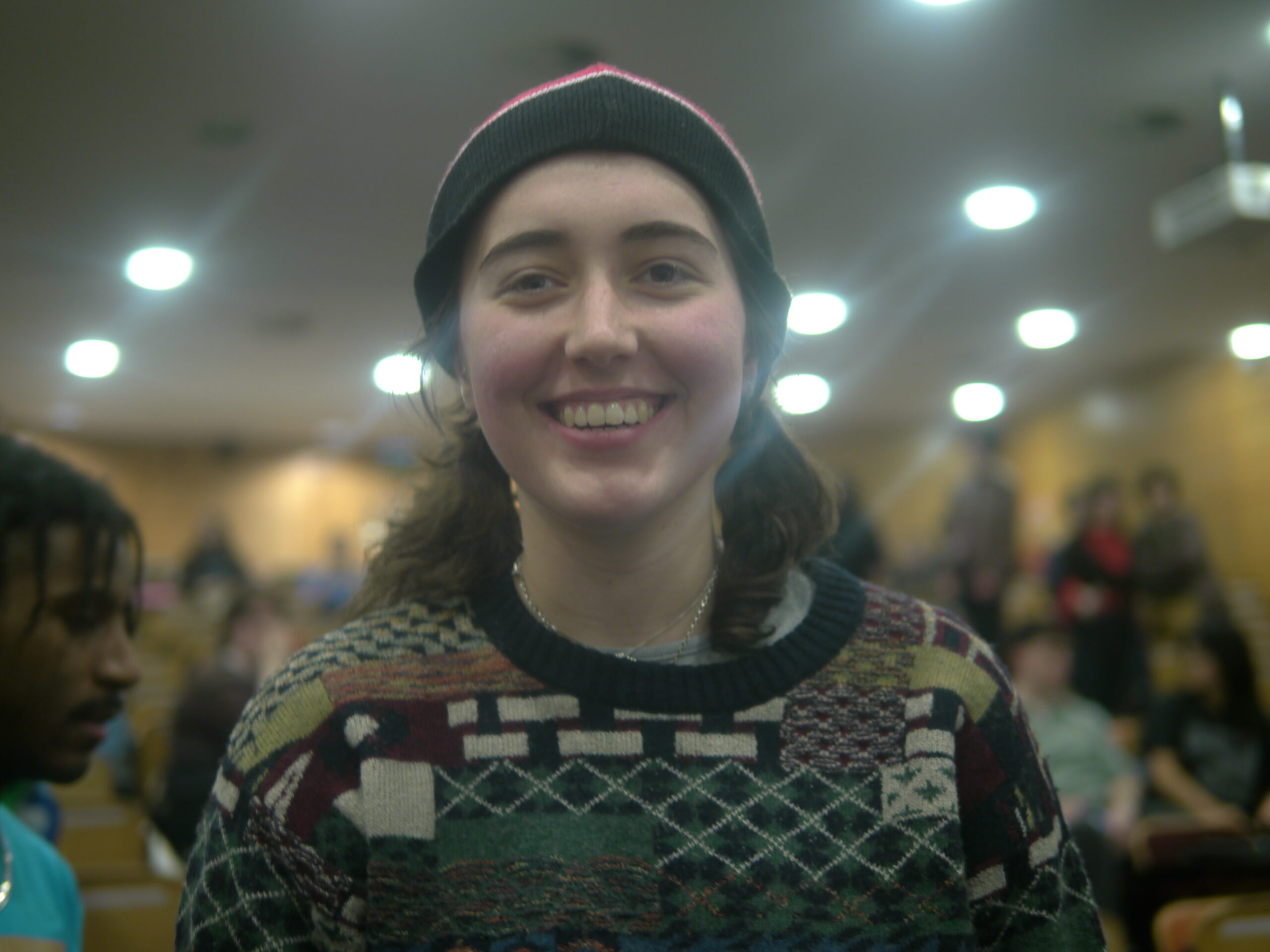Final-year History and Politics student Sarah Murnane is one of three candidates running for Comms and Marketing Officer in this year’s sabbatical elections. Murnane has been vaguely involved in the Union for a couple of years as class representative and through been on a campaigns committee and is hoping to bring this experience forward with her into her (hopeful) new role, along with incorporating some fun new ideas to ensure the job is done well, and encompasses students outside of the Union whilst bringing in more engagement from social media. As mentioned by Murnane, current Comms and Marketing Officer Aiesha Wong has the role as “the glue between all the other officers that binds everything together and keeps the whole year working” which conveys the importance this position has within the Trinity College Dublin Students’ Union (TCDSU). Even though the Comms and Marketing Officer is technically a sort of PR person for the Union, “there’s a very delicate balance of what the Union thinks, and what the Union is going to say. Honestly, that’s just teamwork and figuring out what you want. It’s push and pull, you don’t always get what you want”, but Murnane is very much willing to give it her best shot.
Although she expresses that her manifesto points are not “wildly different”, if elected Murnane wants to place her emphasis on engagement, sponsorship, transparency and accessibility. “For engagement, my big thing is social media, I think the Union doesn’t use it as much as they should”, she says. Her hope is that through the expansion of various social media platforms, the Union can gain their funding through sponsorships in a way that is natural. Through having “local, student-oriented” sponsors, members of the college community can benefit in tangible ways as much as the Union itself, an uplifting thought that aligns with the Trinity values. This would mean it would feel like a much more ethical procedure than a money-grab. Her approach is one of hardwork and dedication, consistently calling and emailing everyone who seems to ‘fit’ with the Union’s goals and bringing ideas to them instead of taking a backseat and waiting for brands to contact her. Apart from this, Murnane aspires to include people who do not necessarily have a role within the SU to become more involved by having spaces on campus which are open to all where casual chats about all things SU can be held. “In terms of people on campus getting engaged and getting into Council, I want to get more volunteering, maybe more in weekly events” which would hopefully bring up the attendance and interest in people going to Council which tends to drop throughout the year.
In terms of more creative endeavours, Murnane is working towards having a bi-annual college newsletter that grabs people’s attention and feeds them snippets of information about what’s going on in the college sphere without having to leaf through the weekly emails that are “useful in a way if you’re willing to read it, but the problem is that it’s always going to be too long… that’s where social media comes in where you have multiple channels where people can access information in a shorter form”. Something that may prove even more exciting is her idea of hosting a podcast where people can come on, have a chat, and talk about their roles within the Union or within college in order to demystify the ins-and-outs of these people’s jobs, which appears to be a big problem — the lack of understanding and transparency of what is actually going on within meetings. That way, the answers to queries people have and any information can just be broadcasted on a larger scale.
With this idea of accessibility becoming a more important issue recently, Murnane wants to ensure that other language options are prioritised so that the SU messages can be read and understood by more people. There will be a lot of collaboration with the Irish Officer and with promising ideas of a refurbished website, the information on there will also be uploaded in a plethora of languages. When bringing up the subject, Murnane says: “I think it’s about being organised, having a team. Everything follows a line before it goes out to see if it goes out to see if it’s accessible, readable, in Irish, if it can be translated into any other languages, where it’s going… it’s pure organisation.” There have been moments in the past where the SU may not have diversified itself enough to different demographics, such as those whose native language is not English or to postgraduate students, on their Instagram or when trying to publicise certain issues within the college. Murnane wants to start from these issues first and see how they can be improved in an effective way, whilst implementing new systems and forms of media for the SU.
Of course, none of this can happen without people’s votes, and as drilled home by Sarah Murnane — our engagement is needed more than ever to encourage change within the Union. It may have been neglected for some time, meaning it will take a bit longer for everyone to be on board with taking a stance, but without it the votes each year are going to drop lower and lower. Murnane states, “In Gabi Fullam’s year [of being SU president], 2,200 people voted, last year only 1,800 people voted. So, I think engagement is more important because sponsorship falls from engagement”.







